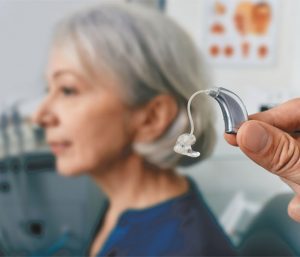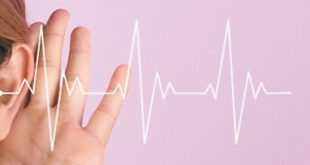Exploring the Profound Effects of Diabetes on Hearing Health
By John Nobile – HAS (Hearing Aid Specialist), BC-HIS, ACA


An Overlooked Association
Diabetes is a chronic condition that affects millions of people worldwide. Characterized by elevated blood sugar levels, it can lead to a myriad of health complications, from heart disease to kidney problems. But one lesser-known consequence of diabetes is its link to hearing loss. This article explores the intriguing connection between diabetes and hearing impairment, shedding light on the hidden effects that often go unnoticed.
The Diabetes Epidemic
First, let’s understand the gravity of the diabetes epidemic. According to the International Diabetes Federation, approximately 463 million adults were living with diabetes in 2019, and this number is projected to rise to 700 million by 2045. The impact of diabetes extends far beyond its association with high blood sugar levels; it reaches into multiple facets of health and wellbeing, including hearing.
The Biological Connection
So, how do diabetes and hearing loss intersect at a biological level? Research has shown that prolonged exposure to high blood sugar levels can damage the delicate blood vessels and nerves in the inner ear. This damage, in turn, impairs the ear’s ability to transmit sound signals effectively to the brain. Moreover, the small blood vessels in the cochlea, a vital part of the inner ear, can become compromised, reducing blood flow and leading to hearing loss.
Types of Hearing Loss in Diabetes
Diabetes-related hearing loss can manifest in two primary forms: sensorineural and conductive. Sensorineural hearing loss is the most common, affecting the inner ear or auditory nerve. It often results in difficulty hearing soft sounds and understanding speech, particularly in noisy environments. Conductive hearing loss occurs when sound waves cannot reach the inner ear due to issues with the ear canal or the middle ear. Diabetes can exacerbate conductive hearing loss by causing complications such as ear infections.
Risk Factors and Progression
Several factors can influence an individual’s risk of experiencing diabetes-related hearing loss. The duration of diabetes plays a crucial role, with long-term, uncontrolled diabetes increasing the likelihood of hearing impairment. Additionally, age and genetic predisposition can compound the risk. It’s essential for those with diabetes to be aware of these risk factors and to regularly monitor their hearing health to catch any issues early.
The Emotional Impact
Hearing loss, regardless of its cause, can have a profound emotional impact on individuals. People with diabetes who develop hearing loss may experience feelings of isolation, depression, and frustration. Communication difficulties can strain relationships and affect one’s overall quality of life. It’s crucial to recognize these emotional consequences and seek appropriate support and treatment.
Prevention and Management
While there is no guaranteed way to prevent diabetes-related hearing loss, there are steps individuals with diabetes can take to minimize their risk. Maintaining good blood sugar control is paramount. Regular check-ups with healthcare providers can help monitor and manage diabetes effectively. Additionally, protecting the ears from excessive noise and avoiding smoking can contribute to hearing health.
Treatment Options
For those already experiencing diabetes-related hearing loss, there are treatment options available.
Hearing aids are a common solution that can significantly improve one’s ability to hear and communicate. Cochlear implants may be considered for severe cases. Early diagnosis and intervention are essential in maximizing the effectiveness of these treatments.
Diabetes is a multifaceted condition that affects various aspects of health, and its link to hearing loss should not be underestimated. The damage to blood vessels and nerves in the inner ear can lead to significant hearing impairment. Understanding the risks, prevention strategies, and available treatments is crucial for individuals living with diabetes. By addressing the connection between diabetes and hearing loss, we can better support those affected and improve their overall quality of life.
John Nobile, HAS, BC-HIS, ACA is a licensed hearing aid specialist and an ACA-certified audioprosthologist who is also board-certified in hearing instrument sciences. With over 55 years of experience, he has transformed thousands of lives in Cape Coral and Fort Myers, FL, by providing his patients with the gift of sound. He is also a former veteran committed to providing all veterans with free services.
Nobile Hearing Aids
231 Del Prado Blvd. S. Ste. 5
Cape Coral
239-323-7389
 Southwest Florida's Health and Wellness Magazine Health and Wellness Articles
Southwest Florida's Health and Wellness Magazine Health and Wellness Articles

